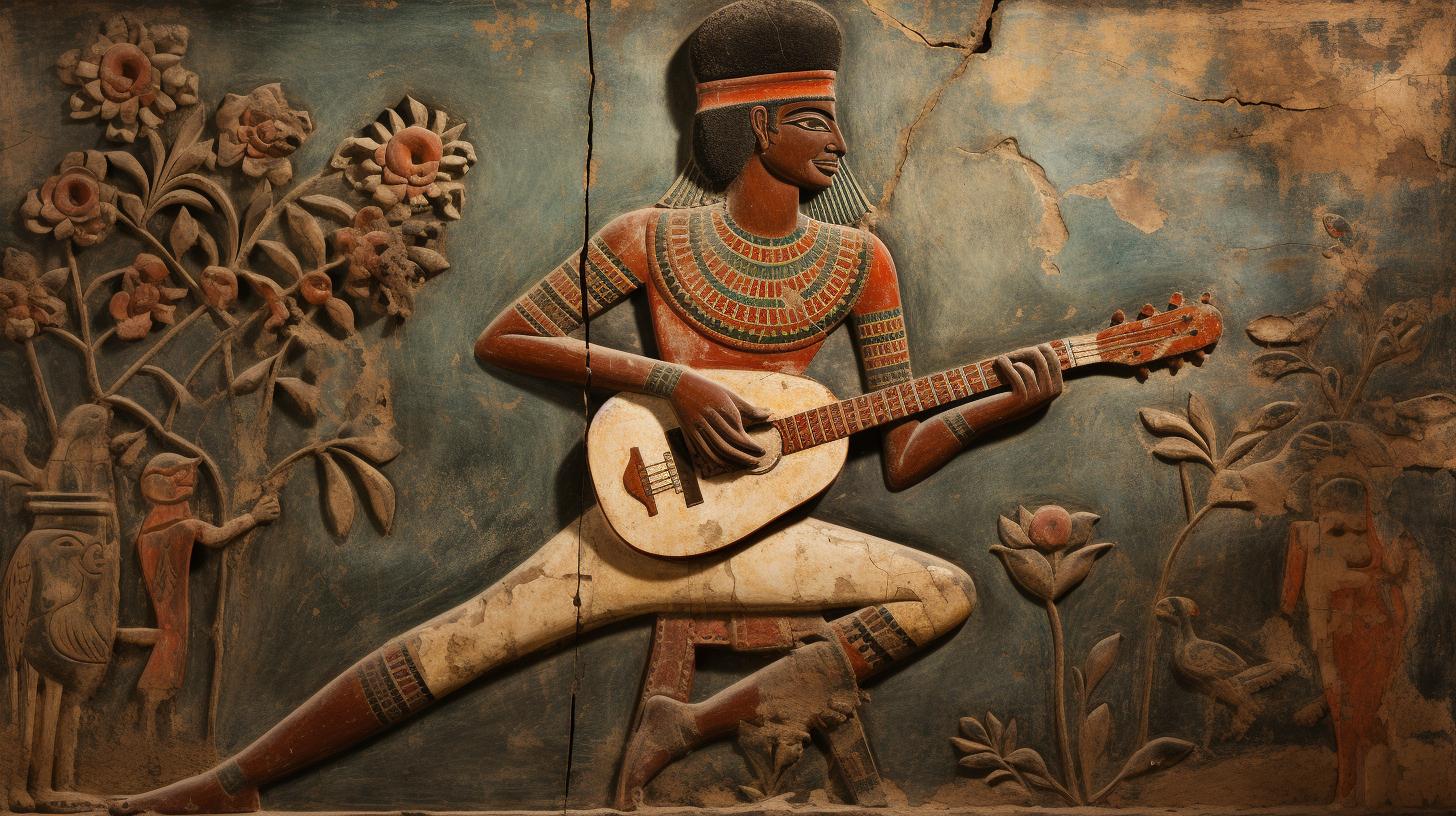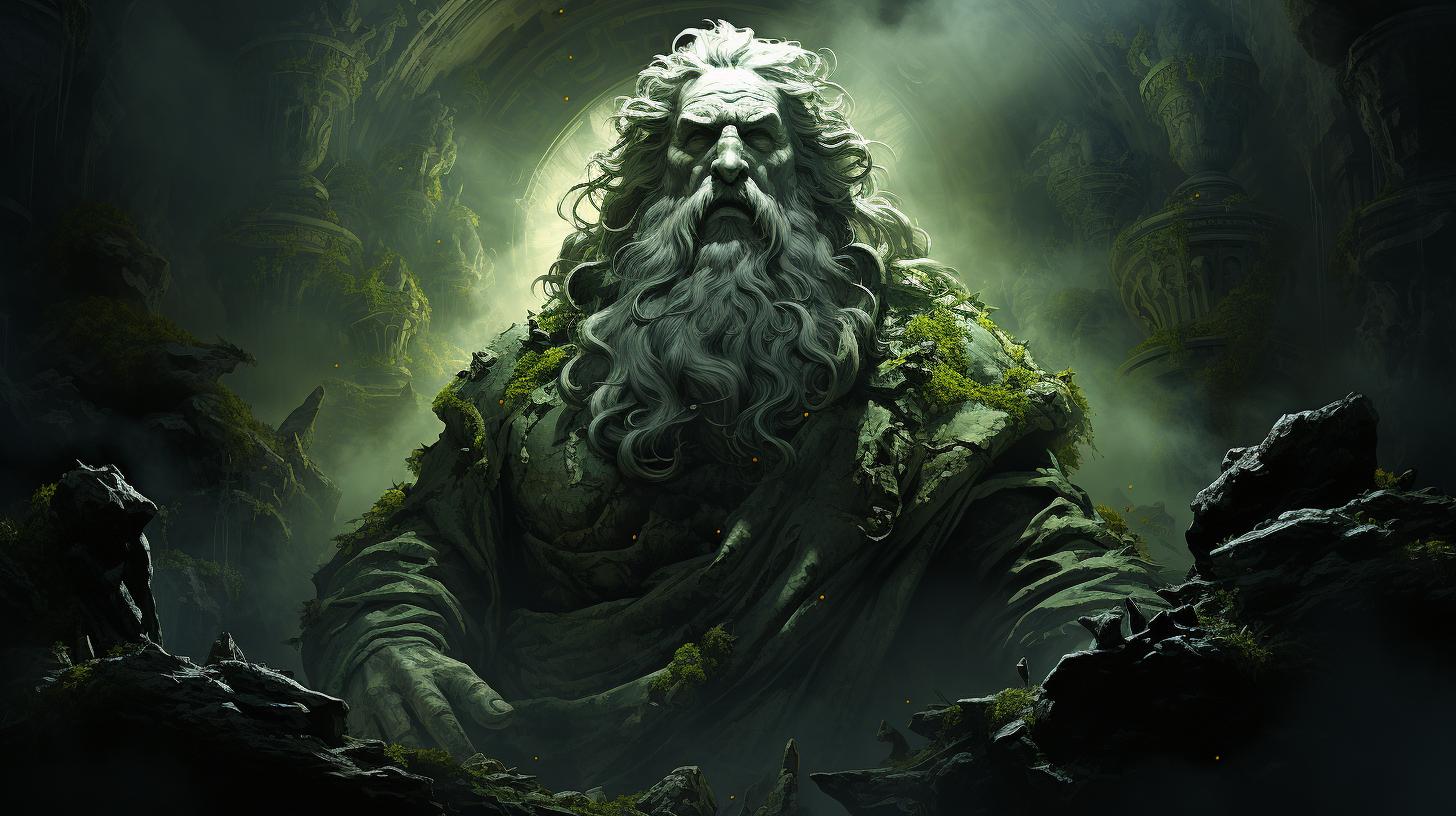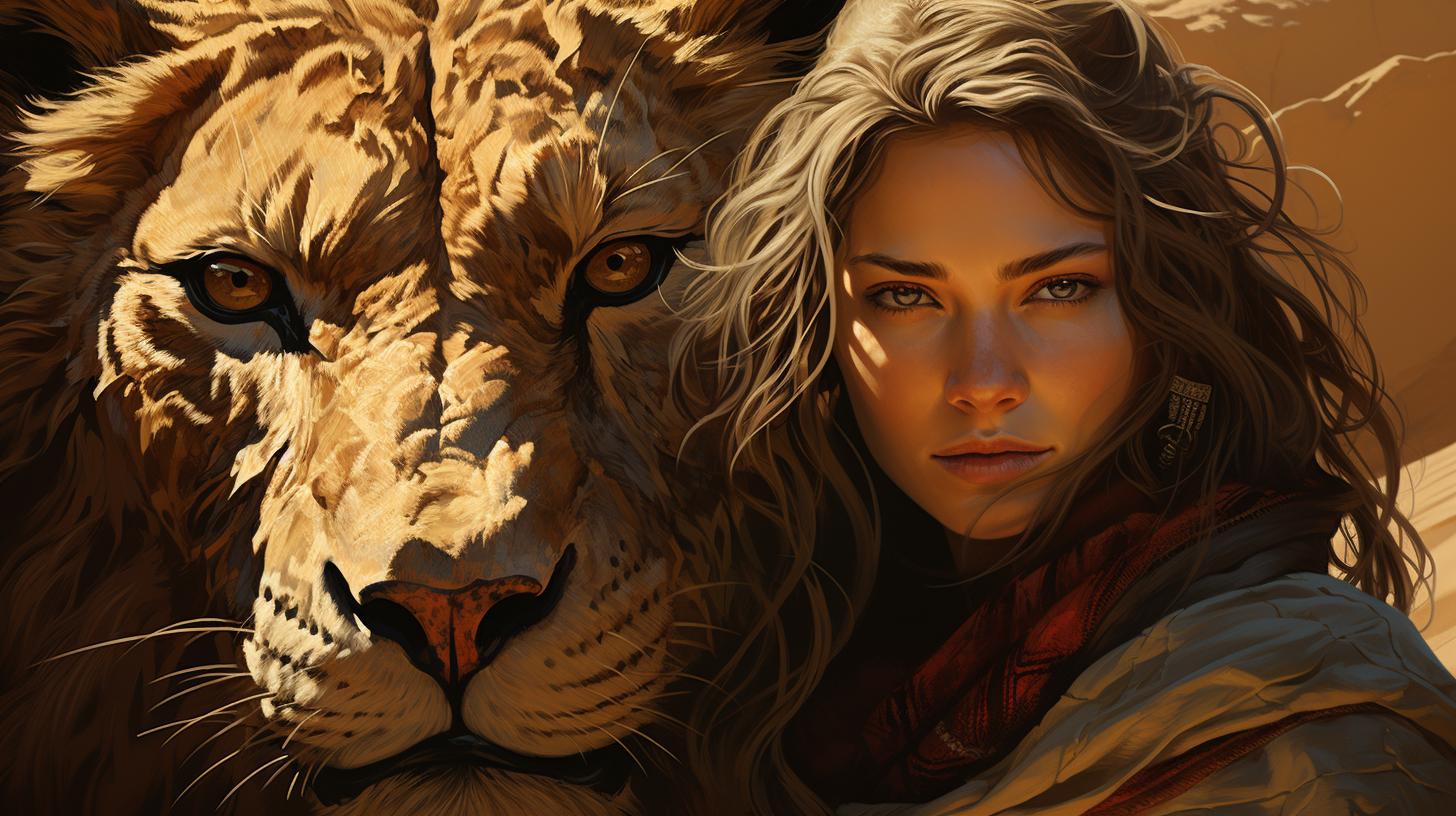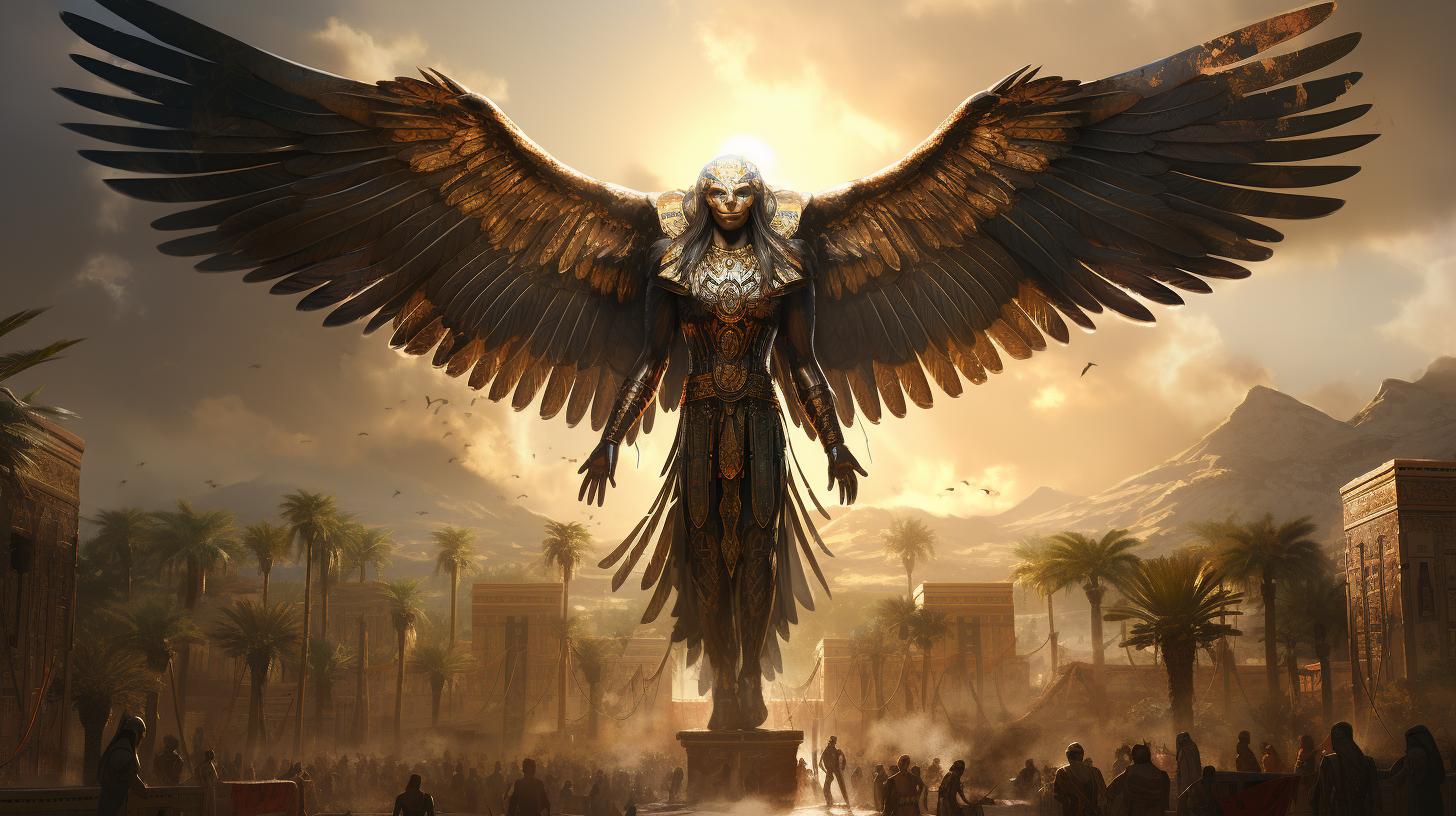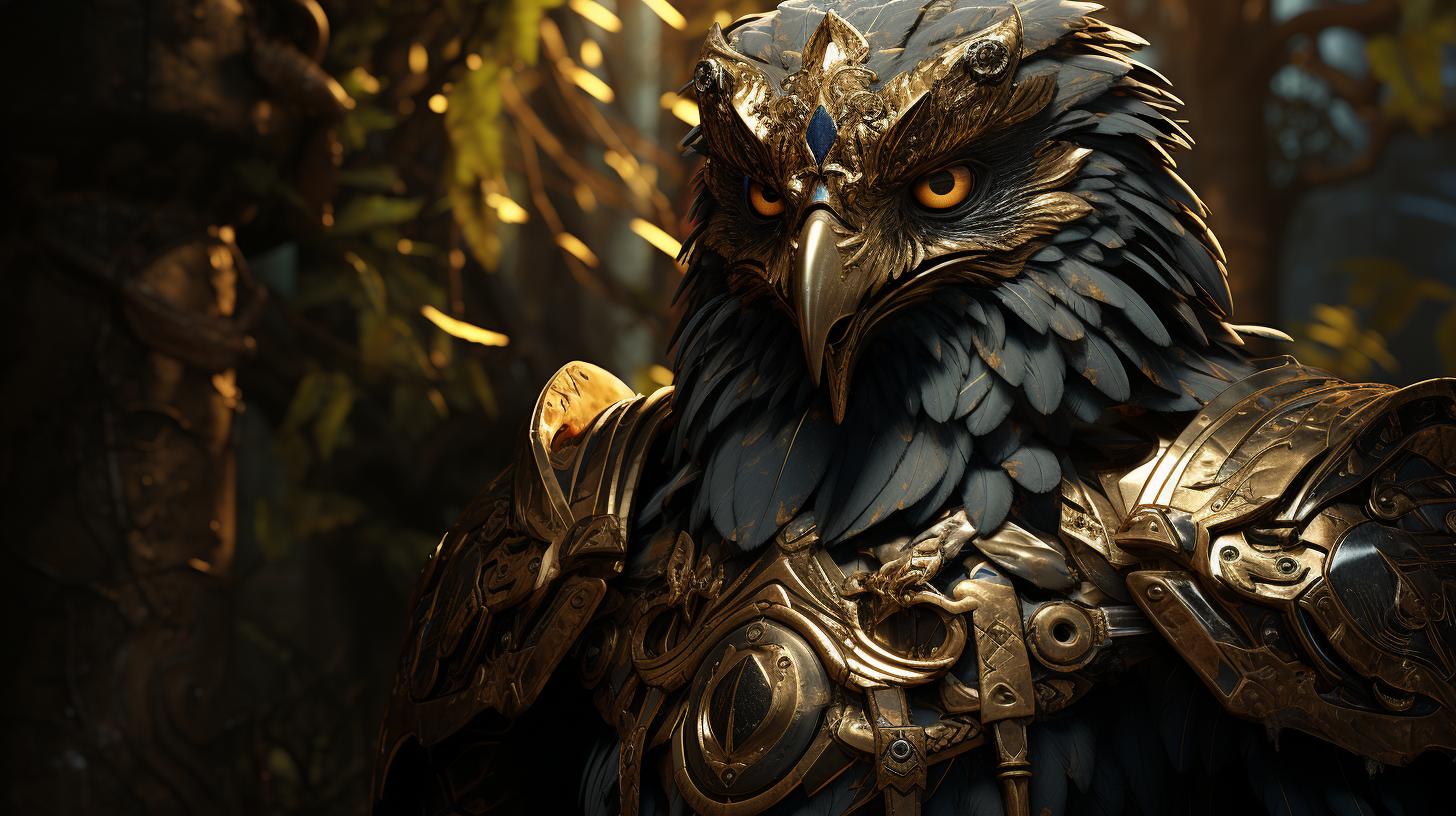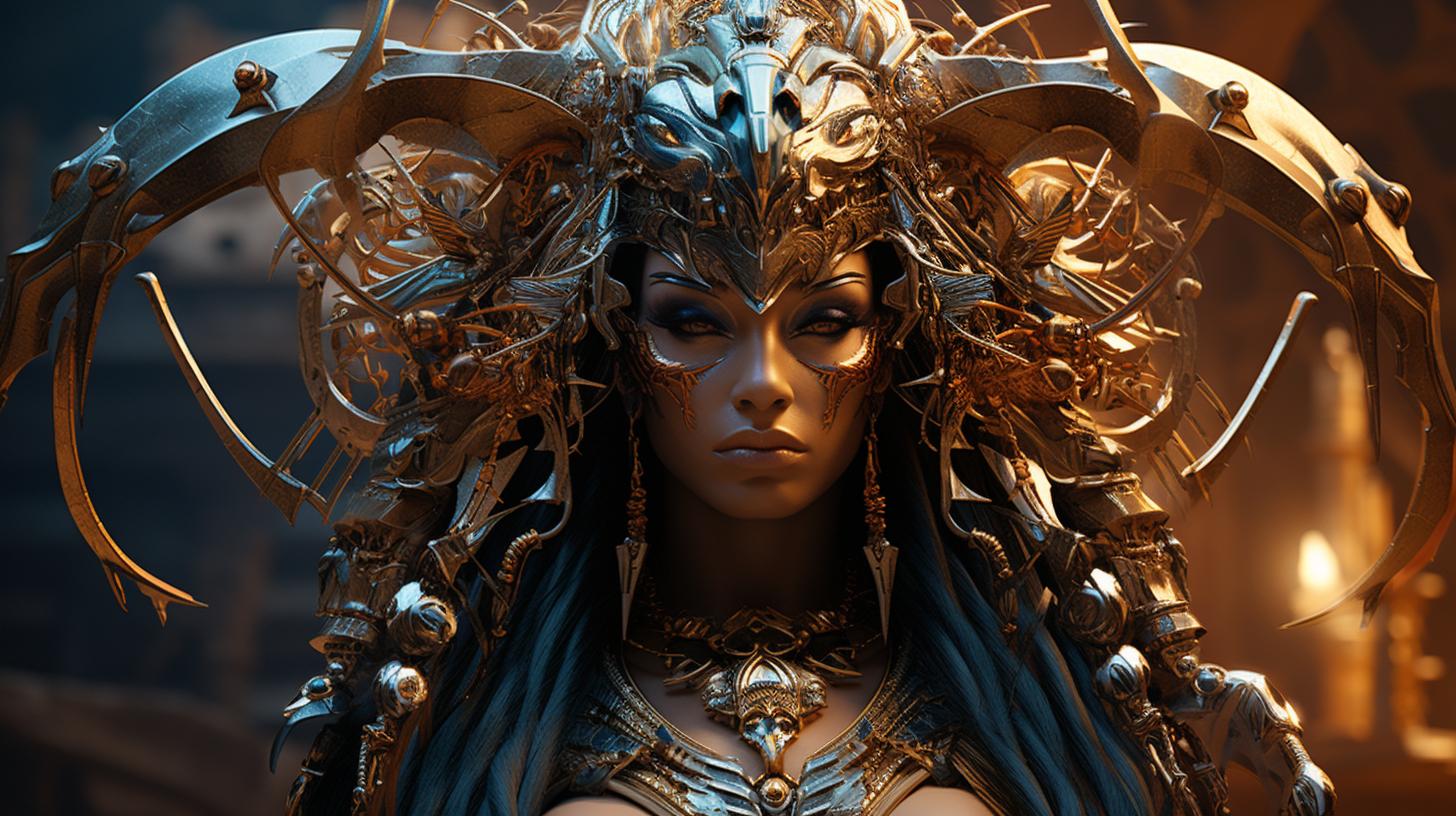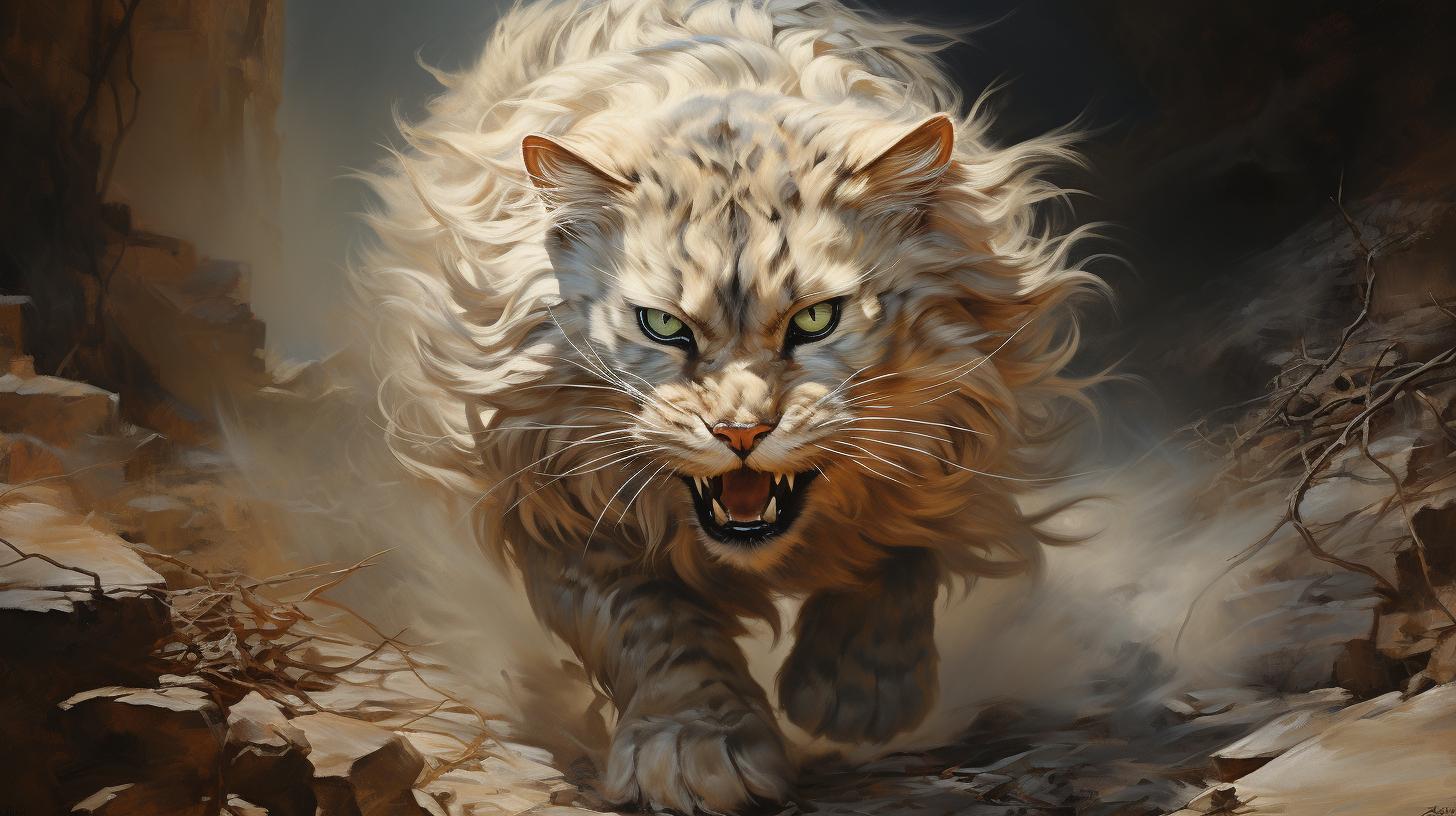Ihy Egyptian God of Music: Exploring the Melodic Wonders of Ancient Egypt
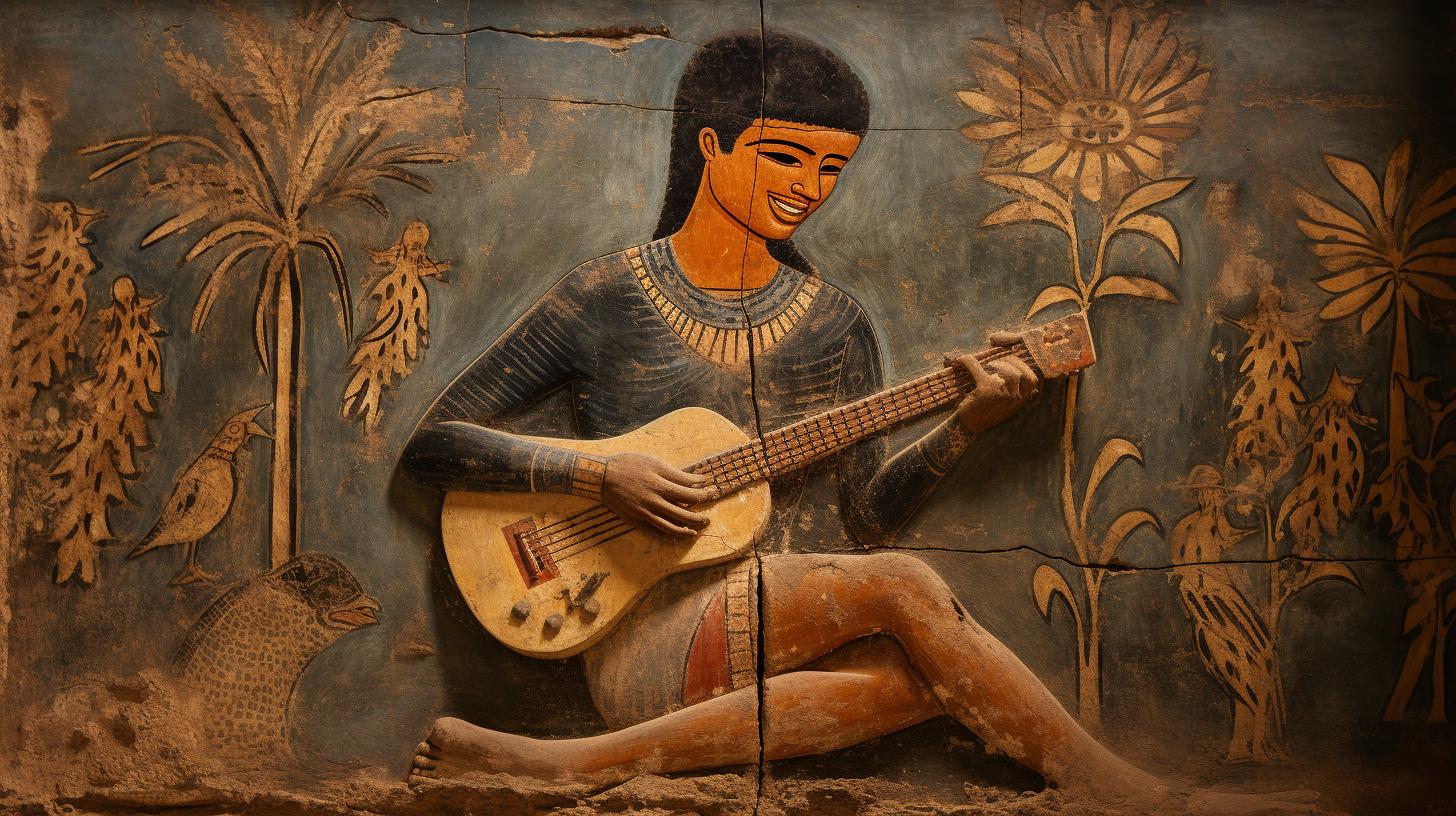
Ihy, the Egyptian god of music and joy, is often depicted as a naked child holding a sacred sistrum. Associated with his mother, the goddess Hathor, Ihy is believed to be the son of Horus and Hathor. Although considered a minor deity in Egyptian mythology, Ihy’s significance lies in his role as the god of music, pleasure, and fertility.
Worshiped in the temple of Hathor in Dendera, Ihy’s connection with the sistrum made him a revered and feared figure in ancient Egypt. Music and dance played a central role in honoring Ihy and his mother, Hathor.
Appearance Of Ihy
Ihy, the Egyptian God of Music and Joy, is a remarkable deity with a unique representation that showcases his significance within ancient Egyptian culture.
Ihy: The Egyptian God of Music and Joy
Ihy is renowned as the deity associated with music, joy, and youthfulness in Egyptian mythology. He is often depicted as a naked child, symbolizing innocence, holding a sacred sistrum in his hand.
This portrayal highlights his connection to the realms of music, pleasure, and fertility, which were deeply valued in ancient Egyptian society.
The Sacred Sistrum: An Integral Part of Ihy’s Representation
The sistrum holds immense importance in Ihy’s depiction. This musical instrument, associated with the goddess Hathor, is believed to possess protective qualities, warding off evil entities and negative energies. As the god of music, Ihy’s representation with the sistrum emphasizes the significance of music as a divine art form and its role in bringing joy and celebration to the ancient Egyptian people.
The sistrum’s melodic vibrations were not only seen as a form of entertainment but also as a means of spiritual elevation. Its rhythmic sounds were believed to connect human beings with the divine, facilitating religious rituals and fostering a harmonious atmosphere in the presence of Ihy and his mother, Hathor.
As worshippers engaged in music and dance to honor Ihy, they celebrated the power of artistic expression and recognized the natural abundance and fertility that he represented.
The sistrum’s association with Ihy underscores his connection to the vibrant and often lively festivities held in honor of Hathor, where music and dance formed essential components of the worship ceremonies.
Despite being considered a minor deity, Ihy’s depiction as the god of music and joy reflects the profound influence music held in ancient Egyptian culture. The celebration of Ihy’s divine presence through melodic expressions and the use of the sistrum illuminates the significance of music as a spiritual and cultural force in the lives of the ancient Egyptians.
The Royal Family
In the mythology of ancient Egypt, Ihy, the god of music and joy, is part of a divine royal family. Let’s explore the two main figures in this family and their connection to Ihy.
Ihy’s Divine Parents: Horus and Hathor
As the son of Horus and Hathor, Ihy has a significant lineage. Horus, the falcon-headed god associated with kingship and the sky, is a prominent deity in Egyptian mythology.
Hathor, the mother-goddess, symbolizes love, joy, and feminine energy.
Horus and Hathor’s union brought forth Ihy, an embodiment of their divine qualities. Ihy inherited his joyful and musical nature from his mother, along with the protection and authority associated with his father.
Hathor: The Mother-Goddess and Ihy’s Connection
Hathor, often depicted as a cow goddess or as a woman with cow horns, played a crucial role in the life of Ihy. She nurtured and protected Ihy, fostering his divine growth.
Through her connection with music and dance, Hathor inspired Ihy’s role as the god of music, pleasure, and fertility. It is believed that Hathor taught Ihy the melodies and rhythms that bring joy and celebration to the world.
The bond between Hathor and Ihy is strong, their connection representing the vital link between motherhood, music, and happiness.
- Ihy’s parents are Horus, the god of kingship, and Hathor, the mother-goddess.
- Horus contributes protection and authority to Ihy’s divine persona, while Hathor instills joy, love, and musical talents.
- Hathor’s influence on Ihy’s life shapes his role as the god of music, pleasure, and fertility.
- The connection between Hathor and Ihy symbolizes the importance of motherhood, music, and happiness in ancient Egyptian culture.
The Temple of Ihy
Welcome to the sacred grounds of the Temple of Ihy, where the divine presence of the Egyptian god of music and joy, Ihy, is honored and celebrated.
This remarkable temple, located within the grand Temple of Hathor in Dendera, holds great significance in the worship of Ihy and his divine connection to Hathor.
Ihy’s Worship in the Temple of Hathor
Within the expansive halls of the Temple of Hathor, Ihy receives devotion and reverence from his followers.
As the son of Hathor and Horus, Ihy is adored within the temple as a symbol of the harmonious relationship between these powerful deities.
The faithful gather in the presence of Ihy’s sacred image, depicting him as a young child holding the sacred sistrum, a musical instrument associated with his divine nature.
The music echoing through the temple during worship creates an enchanting atmosphere, invoking the playful and joyful essence of Ihy’s presence.
Commemoration of Ihy’s Conception and Birth in the Mammisi
The Mammisi, a significant part of the Temple of Hathor, serves as a commemorative space for the conception and birth of Ihy. Within its sacred walls, this miraculous event is celebrated with great reverence and awe.
Visitors can witness the beautifully depicted scenes and hieroglyphs narrating the divine union of Hathor and Horus, leading to Ihy’s conception. The birth of Ihy is depicted as a joyous occasion, celebrated with music, dance, and offerings to honor the divine child and express gratitude for the blessings of fertility and creativity bestowed upon mankind.
Explore the marvels of the Mammisi, where the ancient mythology and sacred rituals intertwine to celebrate Ihy’s divine existence and his profound influence on the realms of music, pleasure, and human fertility.
Music and Celebration in Ancient Egypt
Music and celebration played a central role in the worship of Ihy and his mother Hathor. As the god of music and festivity, Ihy’s presence added vibrancy and joy to the religious rituals of ancient Egypt.
Ihy’s Role as the God of Music and Festivity
Ihy was revered for his ability to bring forth harmonious melodies and uplifting rhythms. His divine influence over music made him a beloved deity among the ancient Egyptians. People believed that through the power of Ihy, they could experience joy, abandon their worries, and connect with a higher spiritual realm.
During various religious ceremonies, Ihy’s divine melodies were performed by skilled musicians. The enchanting sounds of harps, flutes, drums, and other instruments filled the air, creating an atmosphere of celebration and reverence.
The Significance of Music and Dance in Worshiping Ihy and Hathor
Music and dance were inseparable forms of expression in the worship of Ihy and Hathor. They intertwined to create a mesmerizing spectacle that brought the gods closer to the worshippers.
The rhythmic movements, synchronized steps, and graceful gestures of the dancers mirrored the melodies played by the musicians, symbolizing the harmonious relationship between Ihy, Hathor, and the people.
- The dancers, adorned in vibrant costumes, glided across the temple floors, their every step syncopated with the beats of the music.
- The rhythmic clapping and swaying of the worshippers further accentuated the joyful ambiance.
- The combination of music, dance, and rhythmic participation served as a spiritual conduit, allowing individuals to connect with the divine presence of Ihy and embody the essence of music and celebration.
The ancient Egyptians believed that through participating in these musical festivities, they could invoke the blessings of Ihy and Hathor. The cadence of the instruments, the energy of the dancers, and the collective joy of the worshippers united to create a powerful experience that transcended the earthly realm.
Music and celebration were not just fleeting moments of pleasure; they were sacred acts of devotion to Ihy and Hathor. These rituals served as a remembrance of their divine influence on fertility, pleasure, and lust, elements deeply intertwined with the essence of life itself.
Ihy, the Egyptian god of music, holds a significant role in the realm of fertility, pleasure, and lust. His association with these aspects makes Ihy a deity who influences the natural rhythms of life and procreation.
In ancient Egyptian belief, Ihy’s presence and blessings were associated with the prosperity and abundance of crops, animals, and human offspring.
Through the harmonious melodies produced by music, Ihy was believed to invoke a joyful and fertile atmosphere.
The rhythmic beats of drums, chanting voices, and the enchanting sounds of flutes and harps filled the air during celebrations dedicated to Ihy. These festivities aimed to not only honor the god himself but also to invoke his divine influence over fertility and pleasure.
The Symbolic Representation of Ihy and the Sistrum as Protective Forces
The sistrum, a sacred instrument associated with Ihy, carries hidden symbolic meaning in Ancient Egyptian culture. It is believed to possess protective qualities against evil forces and negative energies.
The sistrum’s distinctive sound and vibrations were thought to ward off malevolent entities and create a shield of divine protection around those who wielded it.
Women, especially, played an essential role in the rituals involving the sistrum, as they believed its use not only ensured their personal safety but also bestowed blessings upon their families and communities.
- The sistrum’s handle, shaped like the head of Hathor – Ihy’s mother, symbolizes the strong connection between the divine mother and son.
- Its movable crossbars, often decorated with symbols such as serpents or birds, represent the transcendence of boundaries and the unity of different realms, supporting Ihy’s role in connecting various spheres of existence through music.
- The metal disks or rattles attached to the sistrum produce a distinct sound when shaken, believed to invoke divine energies and repel negative influences.
These symbolic representations of the sistrum serve as a reminder of Ihy’s protective nature and his ability to bring joy, pleasure, and fertility through the power of music.
.











